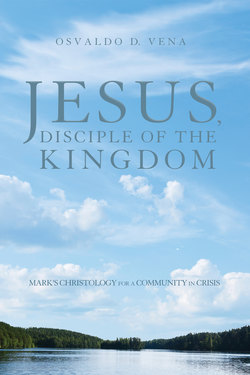Читать книгу Jesus, Disciple of the Kingdom - Osvaldo D. Vena - Страница 6
На сайте Литреса книга снята с продажи.
Preface
ОглавлениеJesus was not a celebrity, but his contemporaries, and those who came after them, made him into one. His town’s people were the first to capitalize on the notoriety of the prophet from Galilee. His disciples and followers did the same. After the resurrection, the early Jesus movement needed to counteract Jesus’ negative celebrity status, earned by his execution on a Roman cross, and so believers took to the task of writing apologetic works, including the gospels, pointing at the empty tomb and the resurrection appearances as proof that God had vindicated Jesus’ life and ministry. This, in turn, laid the foundation for what was to come, namely, the elevating of Jesus of Nazareth to the position of Lord of the universe, Christus Victor, Savior of the world, and Eschatological Judge.
For millennia, the official church has expropriated and misinterpreted Jesus’ true vocation and message in order to build itself into an institution that, to this very day, has controlled the way Jesus is understood by the majority of Christians. The church has dictated the content of Christology in order to achieve the church’s broad and long-lasting goals of self-preservation and theological hegemony. Some of the social ramifications of this Christology, just to mention a few, are: the subordination of women and their exclusion from positions of leadership in the church; the glorification of redemptive suffering, which justifies violence perpetrated against women and sexual and racial minorities; the glorification of redemptive violence, which justifies war, colonization, and genocide in the name of a supposedly sacred mission to Christianize the world. The list can continue endlessly, but these are sufficient to prove my point, which is that the content of Christology has lasting ethical implications. Or to put it in other words: Christology and social practice are intricately related.
In this book, I try to take a critical view of the church’s Christology and suggest an alternative way of looking at Jesus from the perspective of a community, Mark’s, which could be considered pre-church and pre-institution, even though the signs of institutionalization are beginning to surface. It is a way to envision and imagine a different kind of church and, therefore, a different kind of Christianity, not unlike the one envisioned by the Gnostics of the second century or the Jewish Christians of the first. It represents a bold deviation from the norm and a desire to make Jesus’ words and ministry consistent with and relevant to the community’s context, both ancient and modern.
I am grateful to all those people—colleagues, church members, friends, and family members—who have been conversation partners through all the years during which this idea was conceived and brought to fruition. They have been instrumental in the idea’s coherence and validity, which the reader will have to evaluate on his or her own terms. I am especially indebted to Garrett-Evangelical Theological Seminary for granting me a leave of absence to complete this work. I am also grateful to my research assistant, Kerri Allen, and my teaching assistant, Melanie Baffes—both doctoral students at Garrett—for their invaluable work of editing and formatting the final manuscript.
Finally, I offer this book to all those who have felt uncomfortable with the church’s view of Jesus of Nazareth, and I thereby suggest a new way of looking at him—as the disciple par excellence of the kingdom of God, a model for our daily, contemporary journey as God’s people.
Osvaldo D. Vena
March 2013
